Race as a ground for inequality Krutikova Elizaveta

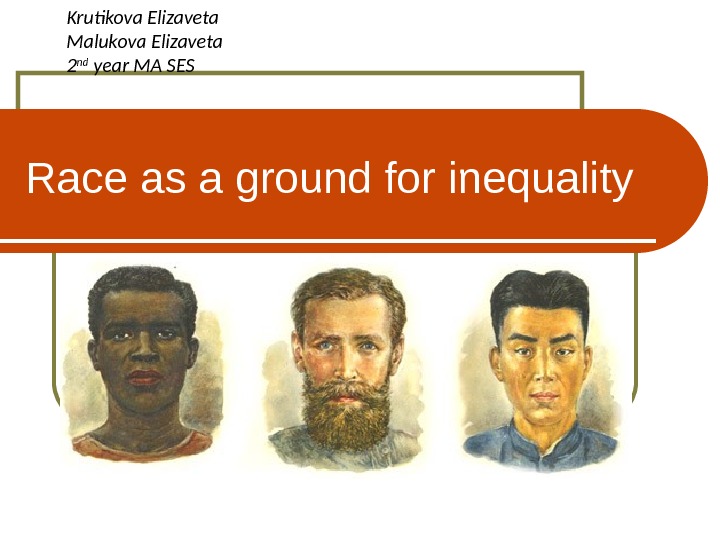
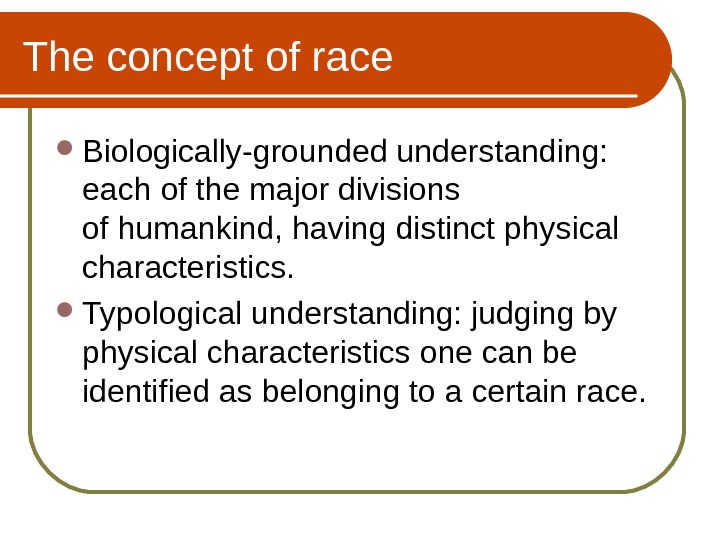
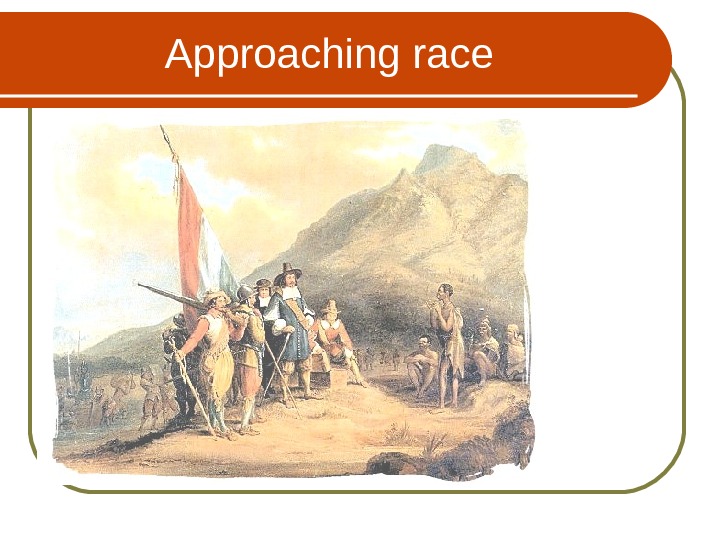
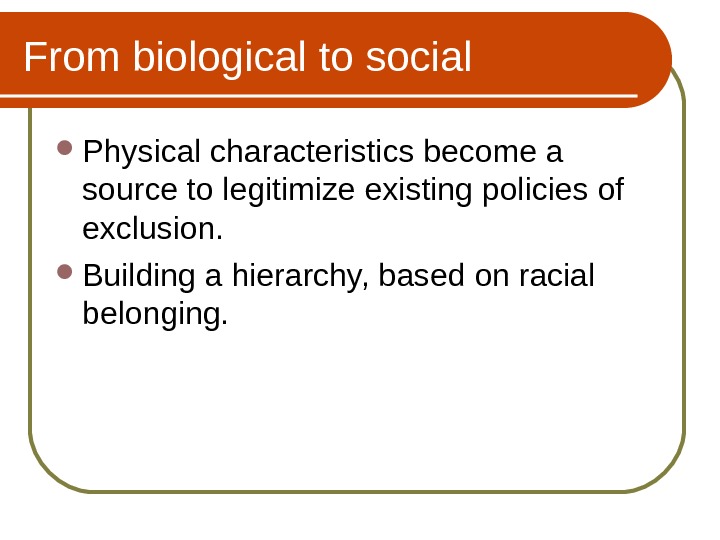
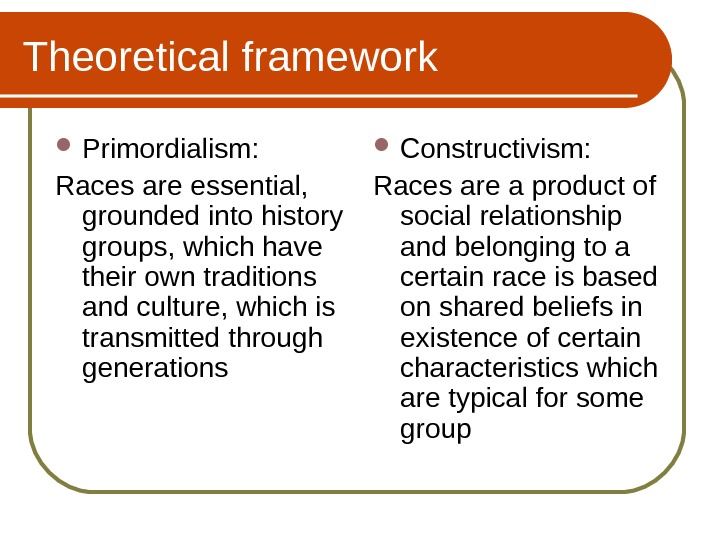
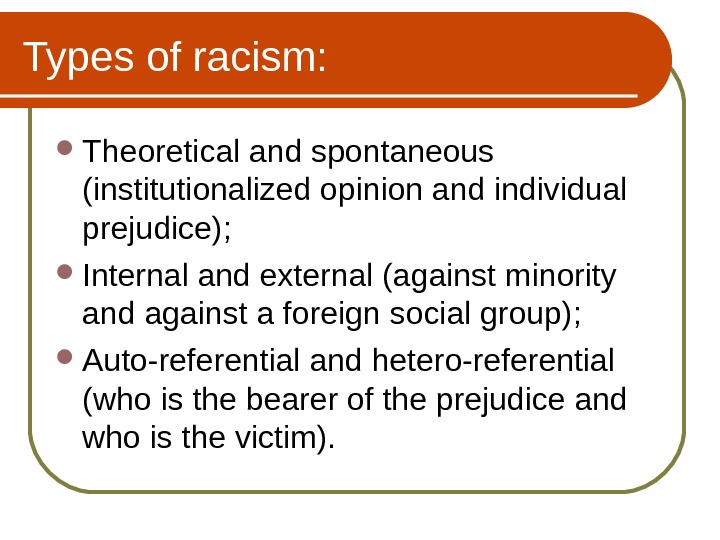
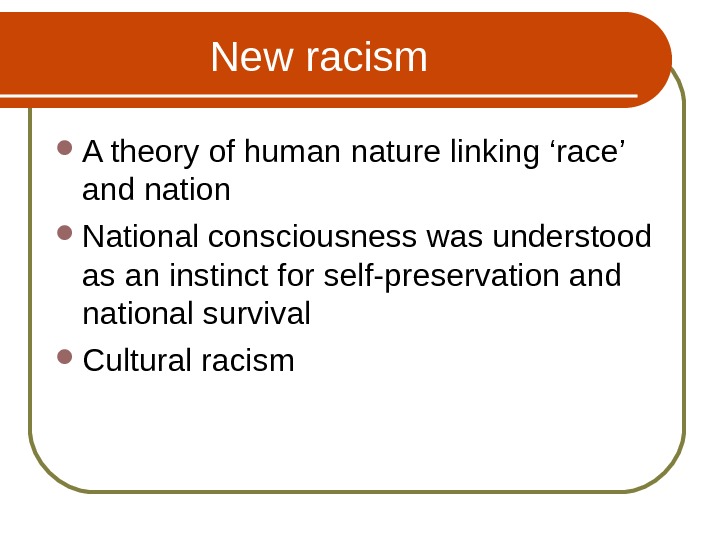
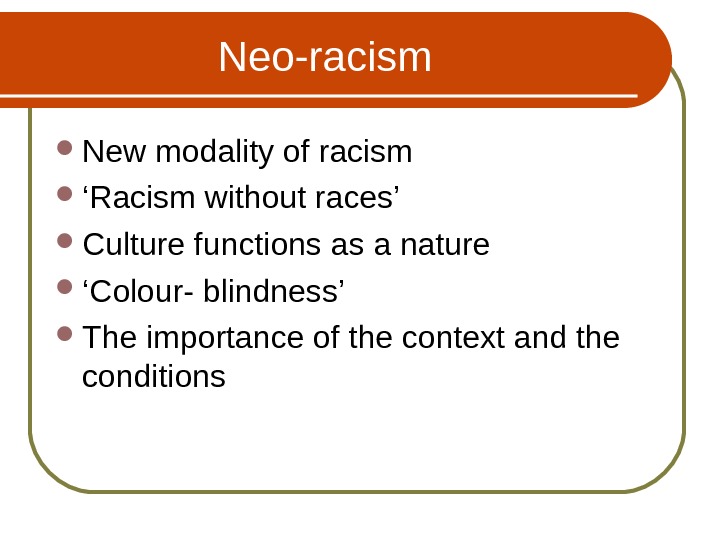
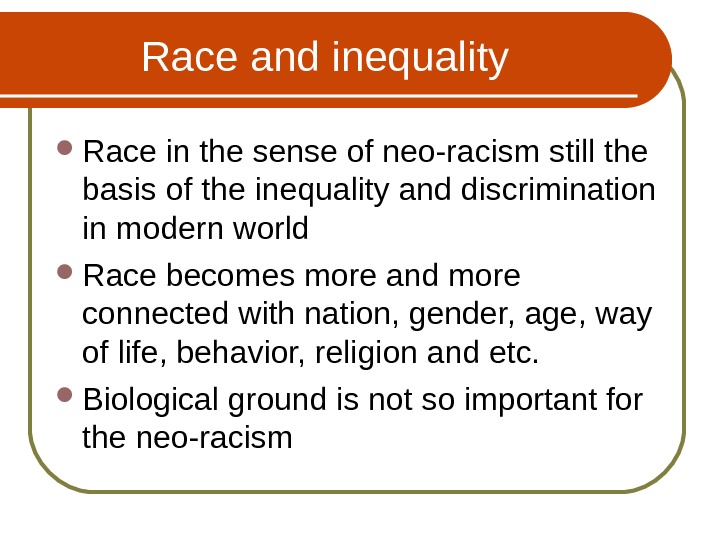
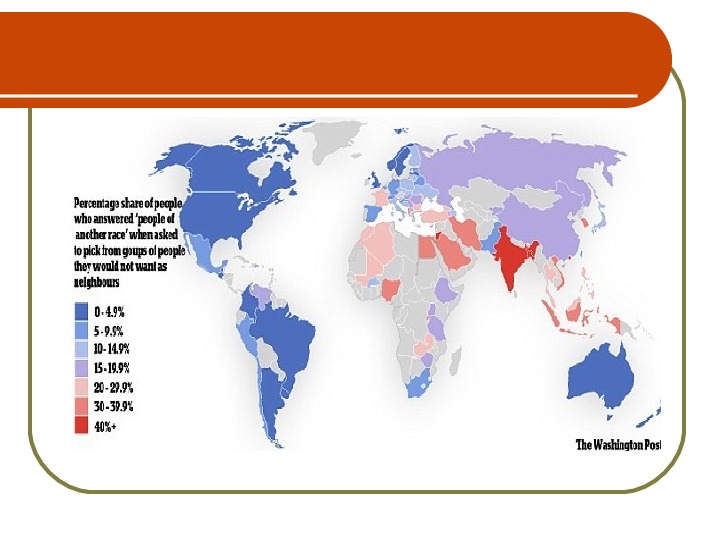
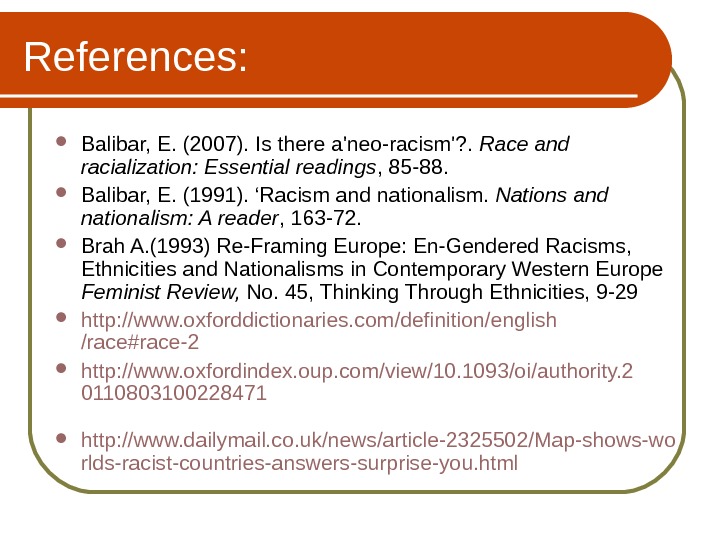
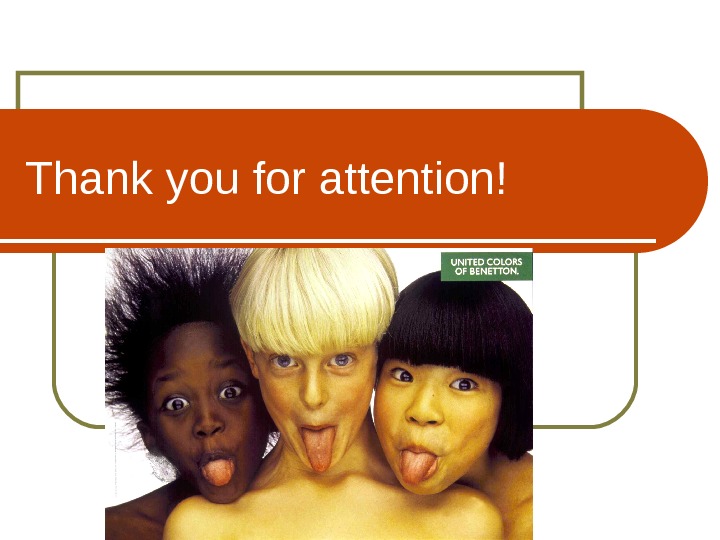
- Размер: 360.5 Кб
- Количество слайдов: 12
Описание презентации Race as a ground for inequality Krutikova Elizaveta по слайдам
 Race as a ground for inequality Krutikova Elizaveta Malukova Elizaveta 2 nd year MA SES
Race as a ground for inequality Krutikova Elizaveta Malukova Elizaveta 2 nd year MA SES
 The concept of race Biologically-grounded understanding: e ach of the major divisions of humankind, having distinct physical characteristics. Typological understanding: judging by physical characteristics one can be identified as belonging to a certain race.
The concept of race Biologically-grounded understanding: e ach of the major divisions of humankind, having distinct physical characteristics. Typological understanding: judging by physical characteristics one can be identified as belonging to a certain race.
 Approaching race
Approaching race
 From biological to social Physical characteristics become a source to legitimize existing policies of exclusion. Building a hierarchy, based on racial belonging.
From biological to social Physical characteristics become a source to legitimize existing policies of exclusion. Building a hierarchy, based on racial belonging.
 Theoretical framework Primordialism: Races are essential, grounded into history groups, which have their own traditions and culture, which is transmitted through generations Constructivism: Races are a product of social relationship and belonging to a certain race is based on shared beliefs in existence of certain characteristics which are typical for some group
Theoretical framework Primordialism: Races are essential, grounded into history groups, which have their own traditions and culture, which is transmitted through generations Constructivism: Races are a product of social relationship and belonging to a certain race is based on shared beliefs in existence of certain characteristics which are typical for some group
 Types of racism: Theoretical and spontaneous (institutionalized opinion and individual prejudice); Internal and external (against minority and against a foreign social group); Auto-referential and hetero-referential (who is the bearer of the prejudice and who is the victim).
Types of racism: Theoretical and spontaneous (institutionalized opinion and individual prejudice); Internal and external (against minority and against a foreign social group); Auto-referential and hetero-referential (who is the bearer of the prejudice and who is the victim).
 New racism A theory of human nature linking ‘race’ and nation National consciousness was understood as an instinct for self-preservation and national survival Cultural racism
New racism A theory of human nature linking ‘race’ and nation National consciousness was understood as an instinct for self-preservation and national survival Cultural racism
 Neo-racism New modality of racism ‘ Racism without races’ Culture functions as a nature ‘ Colour- blindness’ The importance of the context and the conditions
Neo-racism New modality of racism ‘ Racism without races’ Culture functions as a nature ‘ Colour- blindness’ The importance of the context and the conditions
 Race and inequality Race in the sense of neo-racism still the basis of the inequality and discrimination in modern world Race becomes more and more connected with nation, gender, age, way of life, behavior, religion and etc. Biological ground is not so important for the neo-racism
Race and inequality Race in the sense of neo-racism still the basis of the inequality and discrimination in modern world Race becomes more and more connected with nation, gender, age, way of life, behavior, religion and etc. Biological ground is not so important for the neo-racism

 References: Balibar, E. (2007). Is there a’neo-racism’? . Race and racialization: Essential readings , 85 -88. Balibar, E. (1991). ‘Racism and nationalism. Nations and nationalism: A reader , 163 -72. Brah A. (1993) Re-Framing Europe: En-Gendered Racisms, Ethnicities and Nationalisms in Contemporary Western Europe Feminist Review, No. 45, Thinking Through Ethnicities, 9 -29 http : // www. oxforddictionaries. com / definition / english /race#race-2 http: //www. oxfordindex. oup. com/view/10. 1093/oi/authority. 2 0110803100228471 http: //www. dailymail. co. uk/news/article-2325502/Map-shows-wo rlds-racist-countries-answers-surprise-you. html
References: Balibar, E. (2007). Is there a’neo-racism’? . Race and racialization: Essential readings , 85 -88. Balibar, E. (1991). ‘Racism and nationalism. Nations and nationalism: A reader , 163 -72. Brah A. (1993) Re-Framing Europe: En-Gendered Racisms, Ethnicities and Nationalisms in Contemporary Western Europe Feminist Review, No. 45, Thinking Through Ethnicities, 9 -29 http : // www. oxforddictionaries. com / definition / english /race#race-2 http: //www. oxfordindex. oup. com/view/10. 1093/oi/authority. 2 0110803100228471 http: //www. dailymail. co. uk/news/article-2325502/Map-shows-wo rlds-racist-countries-answers-surprise-you. html
 Thank you for attention!
Thank you for attention!

